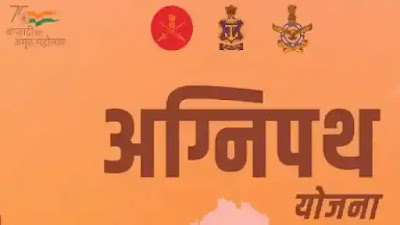UNIFORM CIVIL
CODE
Part IV, Article
44 of the Constitution states that “The State shall endeavor to secure the
citizen a Uniform Civil Code throughout the territory of India”
Courtesy – Wikipedia – “Personal
laws were first framed during the British Raj, mainly for Hindu and Muslim citizens. The
British feared opposition from community leaders and refrained from further
interfering within this domestic sphere. Indian state of Goa was separated from India due to colonial rule in the erstwhile Portuguese Goa and Damaon, retained a common family law known as the Goa civil code and thus being only state in India with a
uniform civil code till date”.
Why Uniform Civil Code (UCC)?
At present though IPC is present matters of faith, religions are allowed to manage matters such as
marriage, property rights, adoption, maintenance, divorce. Having
Uniform Civil Code would strengthen secularism in our country and make all the
citizens equal having same rights irrespective of class, faith and gender orientation.
UCC is supported by liberals and opposed by conservative
religious bodies for their personal narrow short term gain. For one nation
there has to be one law. This will ensure fair treatment to everyone and ensure
justice to everybody irrespective of his religious orientation, class, creed
and gender. An apt example is of Shah Bano case where court could not give
justice to the lady where she got a unilateral divorce based on Sharia. A 73
year old lady married for 40 yrs could not get maintenance when unilaterally
based on triple talaq , her husband divorced her. The SC remained a mute spectator
when Indian National Congress supported a bill to protect the muslim personal
law and with the brute majority of congress the law was passed and the lady did
not get justice. To read more on it one
may google it.
The constitution exhorts us to adopt it. It has been in
the manifesto of some of the progressive political parties and was twice
considered for tabling it in parliament. This monsoon season there is a strong
possibility of it getting tabled in the parliament for consideration and Law
Commission of India has asked for suggestions and inputs from individuals and organizations.
The suggestion window is open till 13 th Jul 2023. Giving
here the procedure to register suggestions from progressive citizens of India -
Go to the following site
https://lawcommissionofindia.nic.in/
GO TO
Click on Uniform Civil Code
- Public Notice (NEW)
This window will appear
Click on View
A public notice will appear like this
Share your recommendations/
comments / suggestions at “click here” or email at membersecretary-lci@gov.in
I am sharing the recommendations
which I have shared to Law Commission of India on the topic.
SUGGESTIONS FOR
UCC
There should be a common uniform
code (refer to article 44 of our constitution) of civility based on sound
ethics and values even though people are of different faith or different
religious affiliations. The values and ethics may be based on best practices
customs and traditions observed by persons of different faiths for the
following
1. Uniform Property rights
2. Uniform policies on polygamy/
monogamy/ live in relationship allowance continuance and government subsidy
cover to such families
3. Control of places of worship
in terms of govt/ trust/ private
4. Uniform Divorce laws
5. Uniformity upto 10 th
education wrt dress and appearance
6. Uniform laws for Madrassas,
Gurukuls and other faiths’ open schooling not following CBSE/ NCERT/ UGC
pattern
7. Subsidy / or no subsidy for
various ' yatras' of various faiths.
8. More incentives for family
with not more than 2 children, highest incentives for family with no children
and no subsidies/ incentives for a family with more than two children belonging
to all faiths.
9. Appointment to places of worships
as Moulavis/ Pujari/ or religious teacher to be made on recommendations of the
outcome of internal exams/ panel interviews or such boards regulated by apex
body of respective faiths/ religious body.
10. Uniform policies for trans
genders from respective faiths.
11. Abolition of certain inhuman
(and hurting flora and fauna) customs / traditions across the faiths/ religious
affiliations after due consideration by intelligentsia of the respective faith/
religions.
12. Abolition of coercive
conversion.
13. Abolition of any art forms,
depiction of any expressions denigrating any faith / religion.
14. Abolition of any local
kangaroo court based on faith/ religious beliefs such as Khaps, Fatwas and
other exhortations by local bodies not having any legal standing or is not
based on Indian constitution / IPC and other Indian jurisdictional proclaims.
15. Creation of apex body for
each faith/ religious affiliation to be met every 5 yrs to weed out time barred
customs / traditions and to welcome new ideas.
16. Strive to make a society
where there are no castes in any religion/ faith. To start with try to abolish
the Title/ Surname/ Last name from while keeping the names of the newborns.
Over the period the caste impressions would get blurred.


